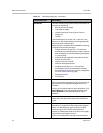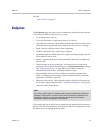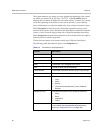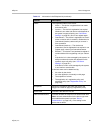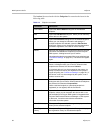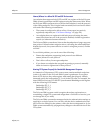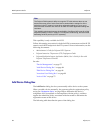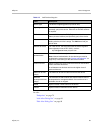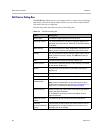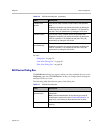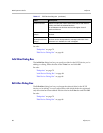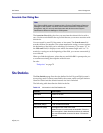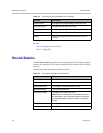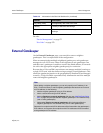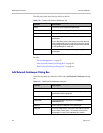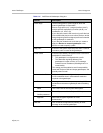
DMA Operations Guide Endpoints
86 Polycom, Inc.
Edit Device Dialog Box
The Edit Device dialog box lets you change a device’s class of service settings,
add aliases, and edit or delete added aliases. You can’t edit or delete aliases
with which the device registered.
The following table describes the parts of the dialog box.
Table 5-6 Edit Device dialog box
Field Description
Device type The device’s signaling protocol (H.323 or SIP).
Signaling address For an H.323 device, the H.225 call signaling address (and
optionally, port) of the device. Either this or the RAS address
is required.
RAS address For an H.323 device, the RAS (Registration, Admission and
Status) channel address (and optionally, port) of the device.
Aliases For an H.323 device, lists the device’s aliases. When you’re
adding a device, this list is empty. The Add button lets you
add an alias.
Site The site to which the device belongs. Display only.
Owner domain The domain to which the device’s owner belongs, if provided
by the device. Display only.
Owner The user who owns the device, if provided by the device.
Display only.
Registration status The registration status of the device. Display only.
Permanent Prevents the registration from ever expiring.
Device
authentication
Indicates whether the endpoint must authenticate itself.
Note: Inbound authentication for the device type must be
enabled at the system level (see “Device Authentication” on
page 243), or the setting for the device has no effect.
Class of service Select to modify the class of service and the bit rate limits for
calls to and from this device.
A call between two devices receives the higher class of
service of the two.
Maximum bit rate
(kbps)
The maximum bit rate for calls to and from this device.
Minimum
downspeed bit rate
(kbps)
The minimum bit rate to which calls from this device can be
downspeeded to manage bandwidth. If this minimum isn’t
available, the call is dropped.



